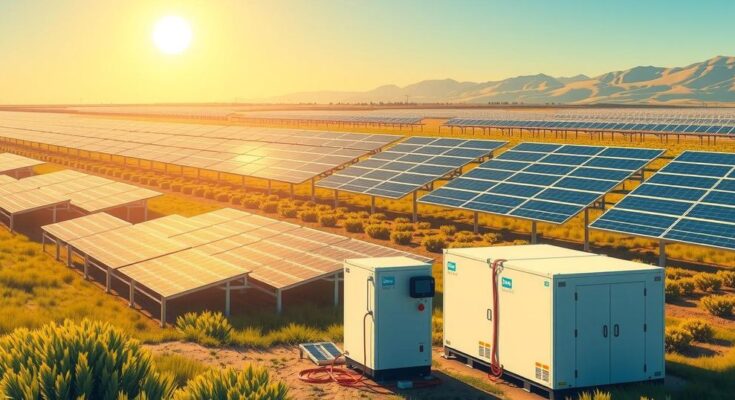Zelestra has signed a PPA with Abastible for a solar-plus-storage plant in Tarapacá, Chile, featuring 220MW solar capacity and 1GWh BESS. This partnership aims to enhance Abastible’s carbon-free energy portfolio, following a similar agreement with Verano Energy. Chile’s renewable sector is evolving amidst curtailment challenges, with an increasing need for co-located solar and BESS solutions. The region is expected to lead solar growth in South America, despite existing financial uncertainties.
Zelestra, a Spanish renewable energy developer, has secured a long-term power purchase agreement (PPA) with Abastible for a solar-plus-storage facility in Chile. This hybrid plant, located in the northern Tarapacá region, will feature 220MW of solar capacity paired with a 1GWh battery energy storage system (BESS) and has already commenced construction.
The hybridized solution promises to supply Abastible with night-time power and enhance its carbon-free energy offerings. Notably, this agreement marks the second solar-plus-storage PPA for Abastible within a month, following a 15-year contract with Verano Energy for an 83MW photovoltaic project with a 660MWh BESS, slated for completion by the end of 2026.
Zelestra has expanded its presence across Latin America, including Colombia, Peru, and Ecuador, boasting a robust development pipeline of 7GW across 56 projects. In Chile, the combination of BESS with solar PV has become increasingly vital due to persistent curtailment and transmission challenges. In 2024, nearly 6TWh of solar capacity experienced curtailment in the country, as reported by the Chilean Renewable Energy and Energy Storage Association (ACERA).
Addressing this trend, Alejandro McDonough, managing director at Wärtsilä Chile, emphasized that co-locating BESS with solar assets has become an “absolute necessity” in the region. Looking forward, Chile and Brazil are projected to spearhead solar PV growth in South America, with Wood Mackenzie forecasting the addition of 160GW of new solar capacity by 2034, 78% of which will emerge from these two nations.
Nevertheless, financial uncertainties remain as a barrier to the full realization of BESS in Chile and surrounding areas, with many countries in Latin America and the Caribbean lacking the necessary regulations and policies to facilitate BESS growth.
Zelestra’s recent PPA underscores the growing importance of solar-plus-storage solutions in Chile’s renewable landscape. The hybrid facility in Tarapacá aims to enhance night-time power availability for Abastible while contributing to its carbon-free energy portfolio. Despite the challenges posed by curtailment and regulatory uncertainties, the region is poised for significant solar PV growth, particularly in conjunction with BESS technology.
Original Source: www.pv-tech.org




